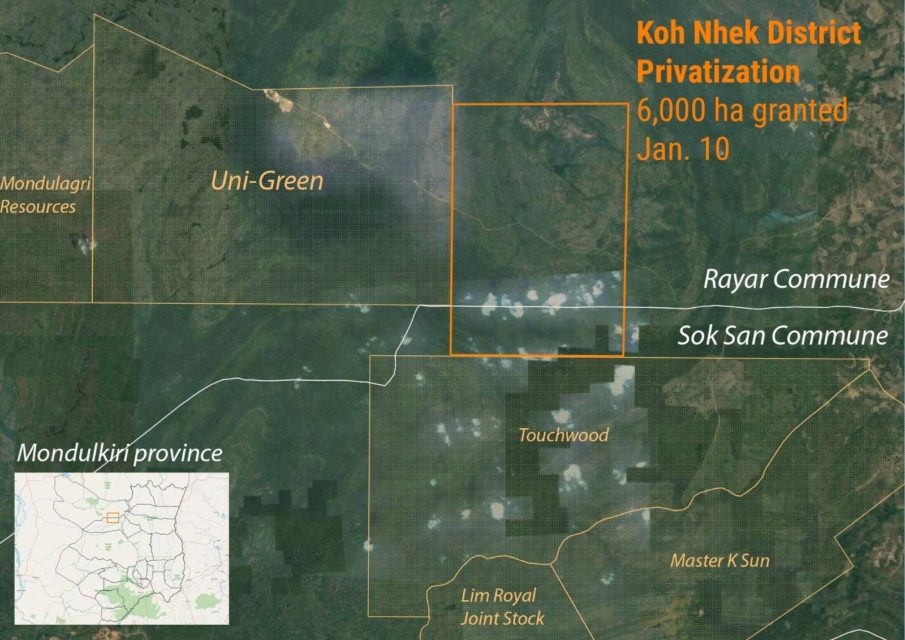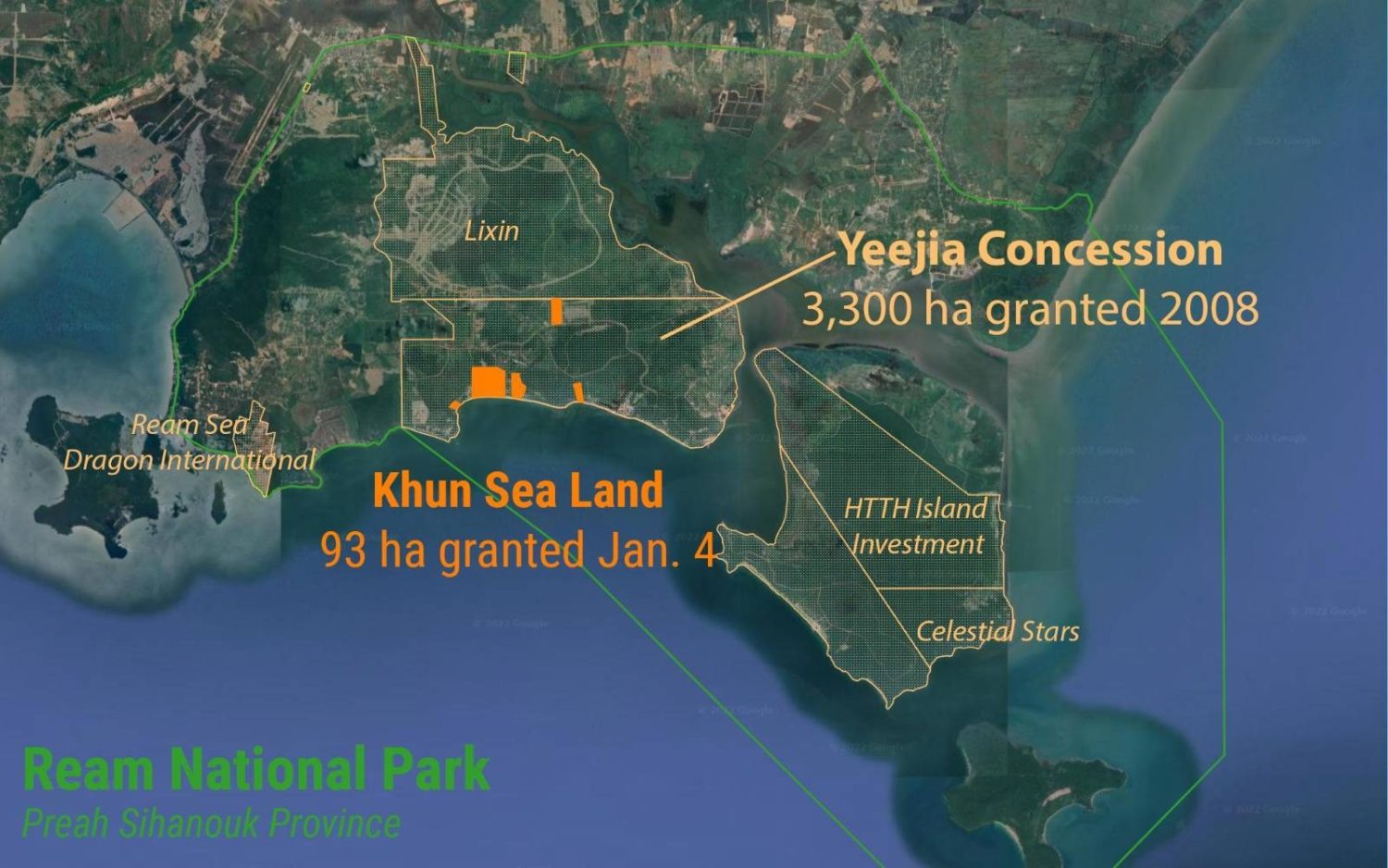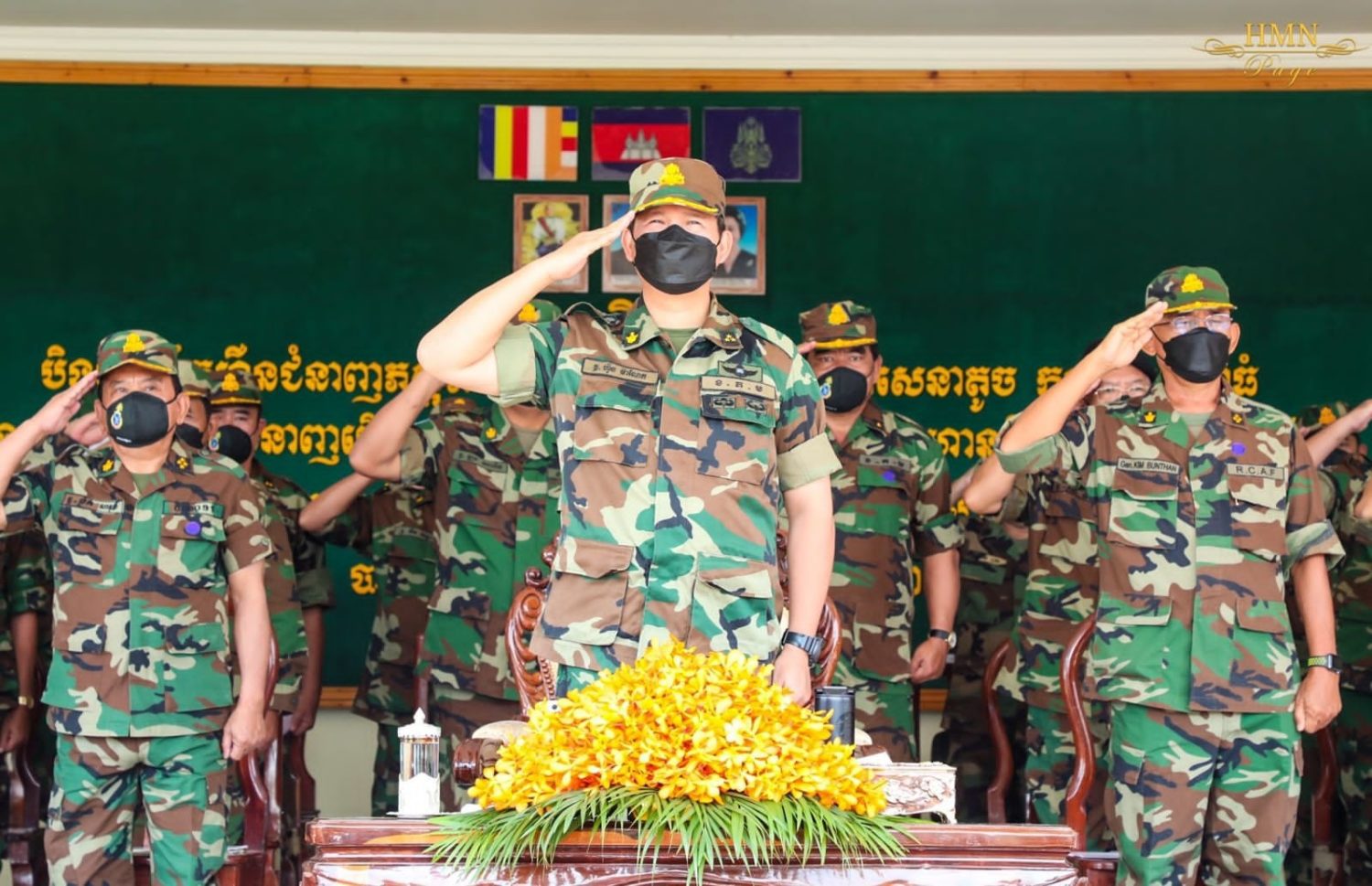Six sub-decrees signed in the span of a week privatized nearly 10,000 hectares across four provinces, with thousands of hectares going to unspecified families in northeastern provinces and a plot in Ream National Park adding to land tycoon Khun Sea’s property empire.
The land change documents were released in the latest tranche of royal gazette updates published last week, showing forested and sparsely populated land in Preah Sihanouk, Stung Treng, Mondulkiri and Kampong Thom provinces privatized — all approved by Prime Minister Hun Sen.
The first among the sub-decrees, signed January 4, granted five pieces of “sustainable use zone” land within Ream National Park totaling 93 hectares to tycoon Khun Sea.
Sea is a frequent recipient of state land: In April 2019 he received a grant for the shores of Kandal’s Akrei Khsat commune that he has been filling with sand for a satellite city; in December 2020 he received 340 hectares of Koh Meas island in Phnom Penh.
In January 2020, Sea also requested a “permanent lease” on 1,161 hectares of land near the 7NG development in Khsach Kandal district, while his TP Moral Group has more recently requested an estimated 700 hectares of Phnom Tamao forest.
Sea was granted an oknha title 2006. And famously, in 2013, a Boeng Kak resident in dispute with the Khun Sea Import Export company had snakes thrown into his house.
Sea’s new territory in Ream National Park appears to overlap with an existing 3,300-hectare concession granted to the Chinese company Yeejia in 2008, and reporters have spotted several resort buildings under development across the concession. The Financial Times reported in 2016 that the Council of Ministers initially nixed the Ream concession until Yeejia’s company chair Fu Xianting met with Hun Sen.
Among other sub-decrees made public last week, the government allocated state land for unspecified families and residents:
- 1,213 hectares in Koul commune, in Kampong Thom’s Prasat Sambor district, as a social land concession.
- 245 hectares of previous forest land in Stung Treng city’s Preah Bat commune to 240 families.
- 707 hectares in Stung Treng city’s Srah Russei commune — 627 hectares to 735 families via 901 plots and 80 hectares reserved for the state.
- 831 hectares of former forest land in the same Srah Russei commune, with 500 hectares reserved for the state and 1,330 hectares to be distributed to 461 families.
Stung Treng provincial hall spokesperson Meng Kong said people already lived on these state-land areas in the city, so the provincial hall applied for the land. He said he didn’t know the size that would be granted, but the government would grant nearly 30,000 plots to different families in the province, including land titles.
“Truly, it will benefit the people,” he said. “First [granting] security and safety of the land, so people can cultivate and occupy that land legitimately, and second they can use their land. … They can sell, change, or rent legally … they can mortgage at the banks to get a loan to run their other business and moreover no one can encroach on their legal land.”

One final sub-decree privatizes 6,000 hectares in Mondulkiri’s Koh Nhek district, cutting the land from a protected area to give to people without land, according to the document. It is part of the World Bank-funded LASED III project, it says. The land covers two communes: Sok San and Rayar.
Sok San commune chief Chhan Chin said on Monday that 430 families in his jurisdiction requested land for their use, but they had so far not heard anything from national land officials, though he knew they were holding meetings over it.
Chin said that among the 430 families, around 300 received benefits through the government’s IDPoor welfare program, including widows and new families.
“It is very little for us, only more than a thousand hectares, while the rest will be handed to Rayar, about 4,800 hectares,” he said. “When the people can get the hard title, it will reduce people’s poverty. We are concerned about them since they do not have houses, land, and farmland. They keep asking in each public forum.”
Chin added that some people from Kampong Cham province have also tried to encroach the area, even though they’ve been warned not to take the land.
“When we’ve gone to ban them [from building], they haven’t listened and stopped, so when we next go there we will remove their houses.”
However, Rayar commune chief Pel Deth told VOD that no families in his commune had requested any land from the government, and that there were no families living there currently, only some trees.
“We have not seen them request to ask for the land and we have announced publicly for them to know they can request for land,” he said.
He added there was a company called Uni-Green that still operates near this area, which was flagged in 2016 for potentially harvesting hundreds of cubic meters of timber.
“We do not know yet [the sub decree’s purpose], and we do not know what the upper leaders are preparing this land for. Both Sok San and Rayar commune’s 6,000 hectares are for social land … [we’ll] wait and see how the upper leaders organize it.”













